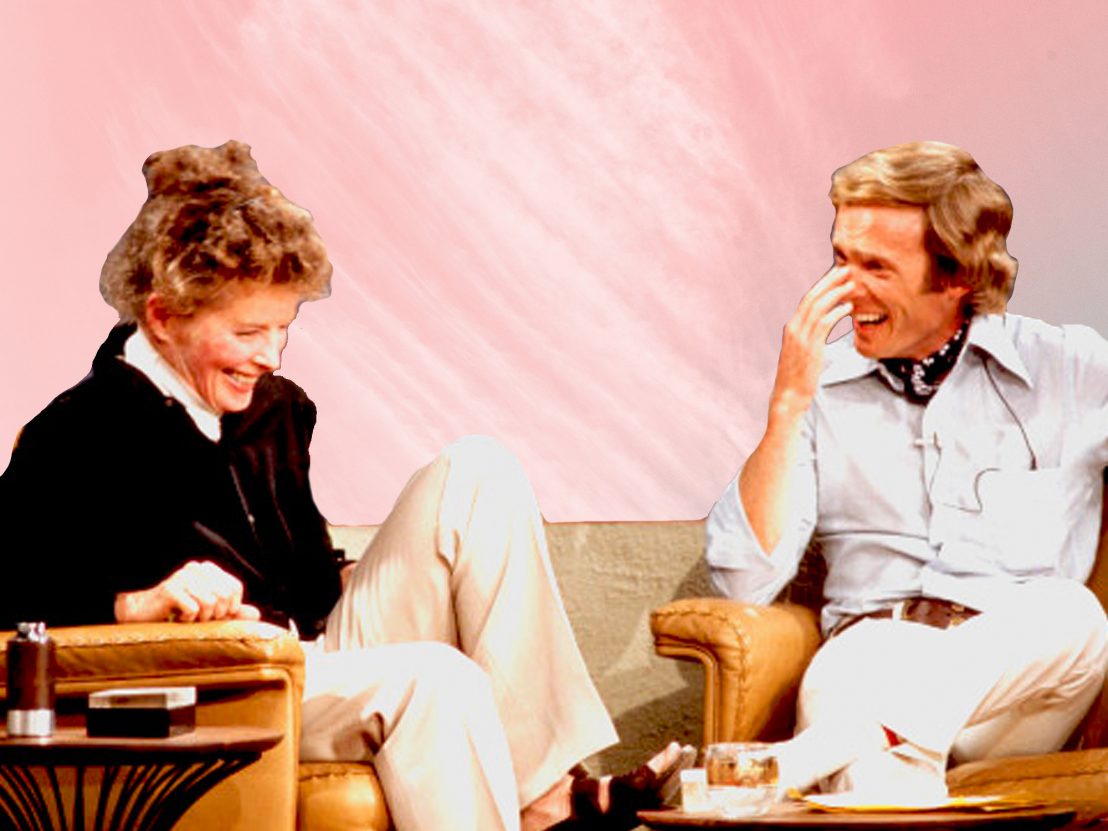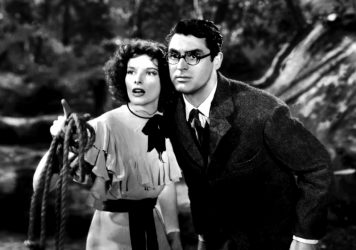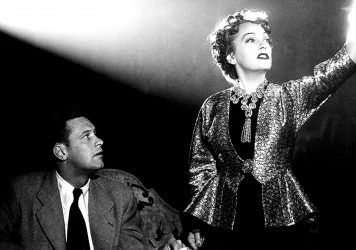
Katherine Hepburn didn’t do TV. “It was gospel,” veteran talk show host Dick Cavett would later recall, “her privacy was practically enforced by the military”. But in 1973, Cavett did the impossible and managed to coax Miss Hepburn, then a spry 66-year-old, out of her shell and in front of a television camera. Her on-air debut turned out to be a sprawling two-hour conversation, broadcast across two evenings, that remains a landmark in American broadcasting.
Perhaps it was Cavett’s urbane public persona that helped to draw Hepburn out of hiding. The Dick Cavett Show had already been on the air for five years, and in that time it had cultivated a refined and metropolitan reputation that was unique among contemporaneous talk shows. He had been a comedian, and he was amusing when he needed to be, but his show put a premium on long-form conversations over anecdotes and one-liners.
Cavett himself wasn’t especially hip but by the early seventies his show had accrued no small amount of countercultural cache – it’s hard to imagine Johnny Carson looking quite so at home with David Crosby or John and Yoko. But he also made a conscious effort to bridge the generational gap, often pairing fashionable younger guests with older ‘living legends’. One famous instance of this was a 1970 edition of the programme that sat rocker Janis Joplin across from silent movie queen Gloria Swanson.
If Cavett’s intent had been to scandalise Swanson with Joplin, he failed. “I have seen everything,” announced Swanson. “I was in Germany when boys were dressing like girls,” adding that “a lot of what goes on today” is merely a “bad imitation” of the roaring twenties. If anything, it was Swanson who scandalised Joplin. At one point, the subject of Swanson’s dabbling with sculpture is broached, as well as her desire to sculpt Cavett. “I want to do his head,” she purrs. “Do you know what I mean by that?” “Yes I do,” replies Joplin, before bursting into a fit of earthy laughter. Cavett doesn’t know where to look – bashfulness was one of his specialties.
There’s something particularly satisfying about seeing female movie stars of an Old Hollywood vintage stretch their legs on The Dick Cavett Show, free from the strictures, fixers, and muzzles they will have known while under contract. Cavett’s affect was well-suited to this type of guest too – he strikes a good balance between gentle flirtation and earnest, grandson-like reverence. Bette Davis was a recurring guest, and her affection for Cavett is palpable, although this didn’t extend to all of the customary talk show pleasantries – “I’m sick of all the kissing on talk shows,” she opined while rebuffing Cavett on a 1971 edition. “I’m against it.”
One thing Davis seems keen to stress to both Cavett and the audience is quite how ‘no nonsense’ she is. She recalls how unglamourous she felt upon her arrival in Hollywood. “Imagine you’ve just seen Jean Harlow,” she scoffs, “and then I come through the gate.” However, she’s never exactly self-deprecating, characterising herself as closer to a legitimate theatre actress than a mere movie star. “I just dressed in an ordinary little Yankee way, and they [Hollywood] didn’t understand people like that.”
However, she did have some kind words for some of her Hollywood contemporaries, particularly her Now, Voyager co-star Claude Rains. “Was he a happy man?”, asks Cavett. “I don’t think as group actors are what I call ‘happy people’,” Davis replies, as an air of melancholy descends upon the studio. “I could not say [Claude] was a happy person,” she continues, “but he was witty, amusing, and beautiful. Really beautiful.” Rains had died four years earlier, and here Davis reflects on the passing of her peers thusly: “It’s going to be a different world. We’re not going to have the same kind of person anymore.” Cavett solemnly concurs. “I’m not going to sit around and moan about the past,” she adds, quickly composing herself.
Despite her general candidness and the show’s loose atmosphere, Davis’s reticence to “moan” extends to her treatment at Warner Brothers, at least initially. While Cavett commends her bravery for duking it out with the studio in court, Davis is hesitant to characterise Jack Warner as anything other than a firm but fair paternal figure.
“We had a smashing relationship,” she asserts. Unconvinced, Cavett gently presses Davis on this point. He points out that if three or so of her films had flopped in a row, she would have been persona non grata on the backlot. Ultimately, Davis must concede that “from their side, [there was] no affection.” Her whole demeanour changes as she starts to deflate in her seat. “Eighteen years at Warners, I built many soundstages there. Never got a letter of goodbye.” It’s heartbreaking, but one can’t help but feel there must have been some catharsis in saying it out loud.
When Katherine Hepburn arrived on The Dick Cavett Show set, she hadn’t come for a taping – she hadn’t even agreed to make an appearance. As per Cavett’s intro to the first broadcast, “She agreed to come into my studio for a test only to check things out to see how it looked and felt.” It was there and then that she agreed to an interview – without a studio audience.
The Hepburn interview really is a remarkable piece of television. On one hand, she meets our expectations – she is every bit the untouchable goddess of The Philadelphia Story, the skittish oddball of Bringing Up Baby, and the regal older lady of The African Queen and Summertime. On the other, there’s something startlingly unvarnished about her here. “Fear is what you and I suffer from trying to be fascinating,” she tells Cavett. “It’s embarrassing.” Hepburn’s charisma is irrepressible, but so are her jangling nerves. “I think the whole human race is petrified,” she remarks, chuckling to herself. “I’m a good coverer-upper.”
The conversation is long and winding, prone to the occasional dead-end, but it’s at its most fascinating when Hepburn unpacks and reflects upon her stardom. In her own estimation, she had “the right kind of looks, the right kind of voice,” as well as standing for “something just a little bit new”. She is, of course, referring obliquely to the feminist streak that ran through her star persona, and Cavett is eager to know her thoughts on the ‘women’s lib’ movement of the seventies, but she seems uncomfortable speaking on the matter. “We did that a very, very long time ago” is all that she will say at first. Later, she attempts to clarify her position: “I can’t see the difference between any of us. Can you?”
Much of the interview deals with gender. This makes sense, a key part of Hepburn’s appeal was her casual flaunting of gender norms. “There are men,” she says, “who are all the same, and then there are women like me who have lived like men.” Some of her positions on the matter are more inscrutable. At one point she insists, without explanation, that a proliferation of feminine men and masculine women is being caused by “overpopulation”. Dick points out that the usual explanation for effeminate boys is overbearing mothers. “Everything is blamed on women anyway,” Hepburn replies, “but they’re trying to put that right.”
The Dick Cavett Show may have been an outlier in its own time, but it’s impossible to imagine such a patient programme surviving in the current TV talk show landscape, so much of which is geared towards bite-sized virality. Podcasts are probably its nearest equivalent, but it’s a shame to think these kinds of conversations now occupy that relatively marginal cultural space – Katherine Hepburn was appointment viewing on network television, two nights in a row.
Cavett had a knack for sweetly and surreptitiously breaking down his guests’ defences, and the female stars of Old Hollywood were some of the toughest nuts he ever tried to crack. As their marathon interview drew to a close, he told Hepburn “I have never enjoyed anything more than this in my life.” “You know something funny?” she replied, “I’ve enjoyed it too.”
Published 20 Sep 2023

By Adam Scovell
Howard Hawks’ screwball is one of the first truly great sound comedies.

By Sam Moore
Billy Wilder’s classic Hollywood satire from 1950 is also a great post-modern ghost story.